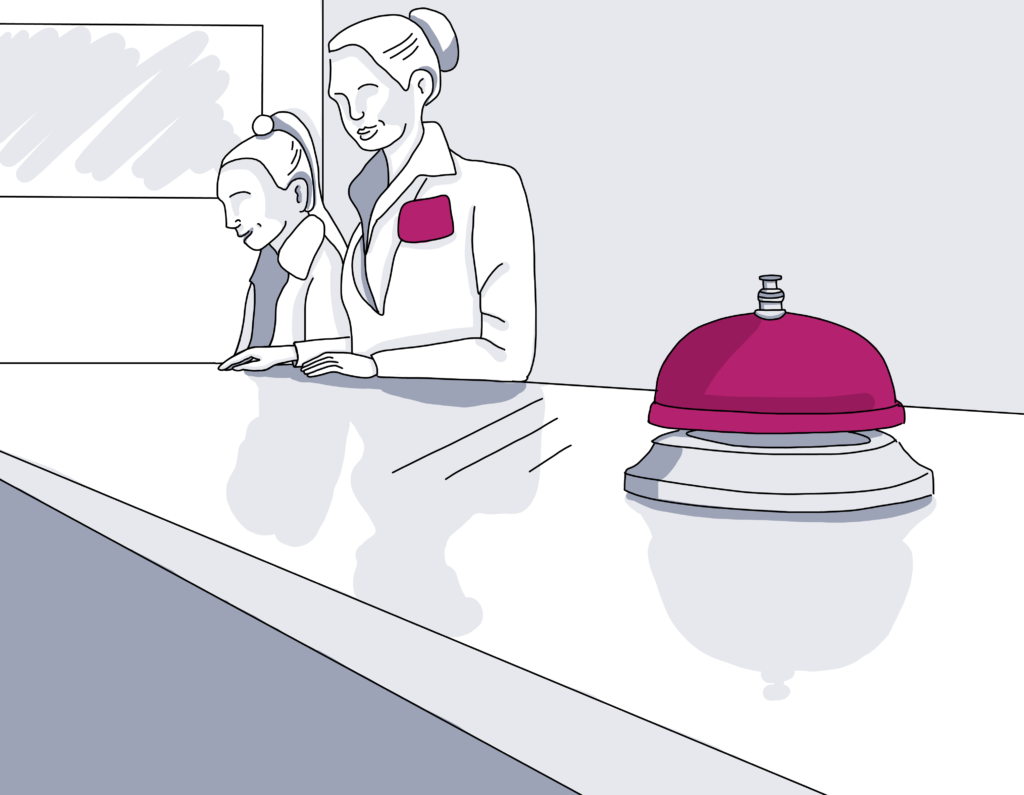
Tech Thursday: 7 Creative Ways to Gain More Referrals with a CRM
If you’ve read our CRM buying guide or our blog, you already know that your CRM system can help you segment your audience, boost SMERF sales, manage your sales team, and even automate your marketing. Most hotels find that their CRM system is a powerful tool for top-of-the-funnel sales and marketing. What you may not know is that your CRM system can help you with loyal and engaged customers as well, by boosting your referrals.
According to Nielsen, 92% of consumers trust referrals from people they know. A Marketshare report notes that word-of-mouth can improve marketing effectiveness by as much as 54%. Businesses using referrals as part of their regular marketing see conversion rates up to 70% higher, and they also report a 69% faster close time.
Read on for 7 creative tips for gaining more referrals from your CRM system.

1. Find the right time to ask
Most hotels ask for referrals right after booking or soon after a guest’s stay. While either of these times could be optimal, you could also be missing out on referrals simply by asking at the wrong time. Thankfully, you can use your CRM to determine the perfect time to ask for a referral at your property.
Research has shown that the best time to ask for a referral is the moment of first success. This is different for every customer, but is essentially the moment when they feel that they made the right choice when they chose your property. For some event planners or group organizers, first success could be the feeling of simplicity they get from a stress-free booking process. For others it could be the group’s arrival at the hotel, and seeing how your team has customized the experience with great curb appeal. Or maybe it is when they are delighted by an unexpected note from your team to follow up after their stay and see how everything went.
It’s a bit of a guessing game to figure out which moment is right for your property, but your CRM can give you clues. When spontaneous referrals happen, add a note to the contact that made the referral, noting when in their process they referred you. Over time, you should see trends start to emerge for certain group types.
Don’t be afraid to experiment with when you ask for the referral – just keep track of it in your CRM so you can measure which of your efforts are successful!
2. Offer a reward program
While not all group planners will respond to rewards, you will likely find that offering rewards or incentives for referrals will work with some of your audience. A reward in this case is not paying for the referral, but offered as a thank-you to an event planner or group organizer that you have formed a relationship with. You can use your CRM to track these rewards, as well as to test different rewards with different audience segments. Keeping track of which incentive was offered, to which group, and at what time allows you to measure the success of your efforts and come up with a repeatable strategy over time.
When thinking through what types of rewards or incentives to offer, think about the type of referral and the value to your property. A group planner for a sports team who sends a personal email to all the other teams in the league, for instance, likely deserves a far larger reward or thank-you than an event planner who clicks a button to share your Facebook page. Try to craft appropriate incentive packages for different levels of referral. The perks that you offer can be standard, like free nights or a monetary discount, or can be more creative and tailored to the type of group that you’re offering it to. Check out our creative rewards for groups for some ideas of things you could offer in return for helpful referrals.
3. Identify most likely referrers
One of the most powerful benefits of a CRM system is the ability to get to know your customers like you never have before. You can move beyond the basics that you know about event planners and organizers, and instead get to know their behaviors and how they move through your sales process.
Some behaviors are useful for identifying a customer as more likely to give you a referral than others. First, the customer needs to have a good experience (this one is pretty obvious). Beyond this, you may find that customers who rate you highly using a Net Promoter Score (NPS) make more referrals. If they have made a referral for you before, that’s even better. As you start to track referrals in your CRM system you will begin to notice patterns, and may even be able to identify behaviors of likely referrers before they make the referral.

4. Keep track of referral marketing tasks and contacts
Depending on the size of your property, your sales team likely has relationships with hundreds or even thousands of current and prospective event planners. Keeping track of all of those relationships via email, spreadsheets, and paper contract systems may even be why you chose to use a CRM system in the first place. The ability to sort and keep track of all of your contacts can also be enormously helpful for your referral marketing.
As you reach out to contacts to ask for referrals, send requests for feedback, and deliver referral incentives, make sure to make a note in your CRM. The system can then serve as institutional memory, keeping track of all of your relationships and loyal customers even through changes in your sales and marketing team.
5. Share the task among team members
Just as your CRM can serve as institutional memory, it can also serve as a group taskmaster. Being able to assign tasks to different team members in sales, marketing, and operations means that you can split up relevant pieces of the sales funnel among your team members. In regards to referrals, this means that you can assign one person the task of asking for the referral, another the task of following up, and a third the task of handing out referral rewards and perks.
The CRM keeps track of who has accomplished which task, ensuring a seamless referral process with no information slipping through the cracks. Your customers will feel that every person on the team understands their history with the property and has customized their approach accordingly.

6. Keep track of key information to personalize your approach
As we’ve discussed, splitting referral marketing tasks among your team members allows you to develop a seamless approach that uses everyone’s strengths. This also means that you can personalize the experience of your guests – and your CRM can help.
Your CRM system has a wealth of information in it about your customers and potential customers – their industry, usual group size, when they book, where they stay, how much they spend, special requests, etc. It can also include pretty much any information that you identify as being helpful for your property to track – the type of group, type of event, which event spaces they used, day of check in, how they booked, etc. While all of this information is helpful in its own right, the true power of it comes through in personalization.
Imagine you are an event planner, and receive an email from a property after you plan a wedding there. Instead of the usual Thanks for booking, please refer us, you receive a message tailored to you and your event. It says, We noticed your wedding party loved how the garden looked for their pictures. Here are a few available dates when the garden should be at peak bloom. Do you have any weddings you would like to book for those dates?. This seems like a labor-intensive approach, but with all of the information you have tracked in your CRM system this email can be composed and sent in just a few minutes.
7. Analyze referral behavior to optimize over time
As with any form of marketing, it’s important to test different approaches and measure your success. The reports section in your CRM will help you determine how many new leads came from referrals, which customers were the best referral sources, and whether the sales cycle was different for referral-based leads. As you test your approach and make changes, you will begin to see the process that makes the most sense for your hotel and leads to the most referrals.
Hopefully you now have a few creative ideas for building your referral process using your CRM. Still need to find the right CRM for your business? Check out Social Tables Sales and Catering CRM, built especially with hospitality in mind!

